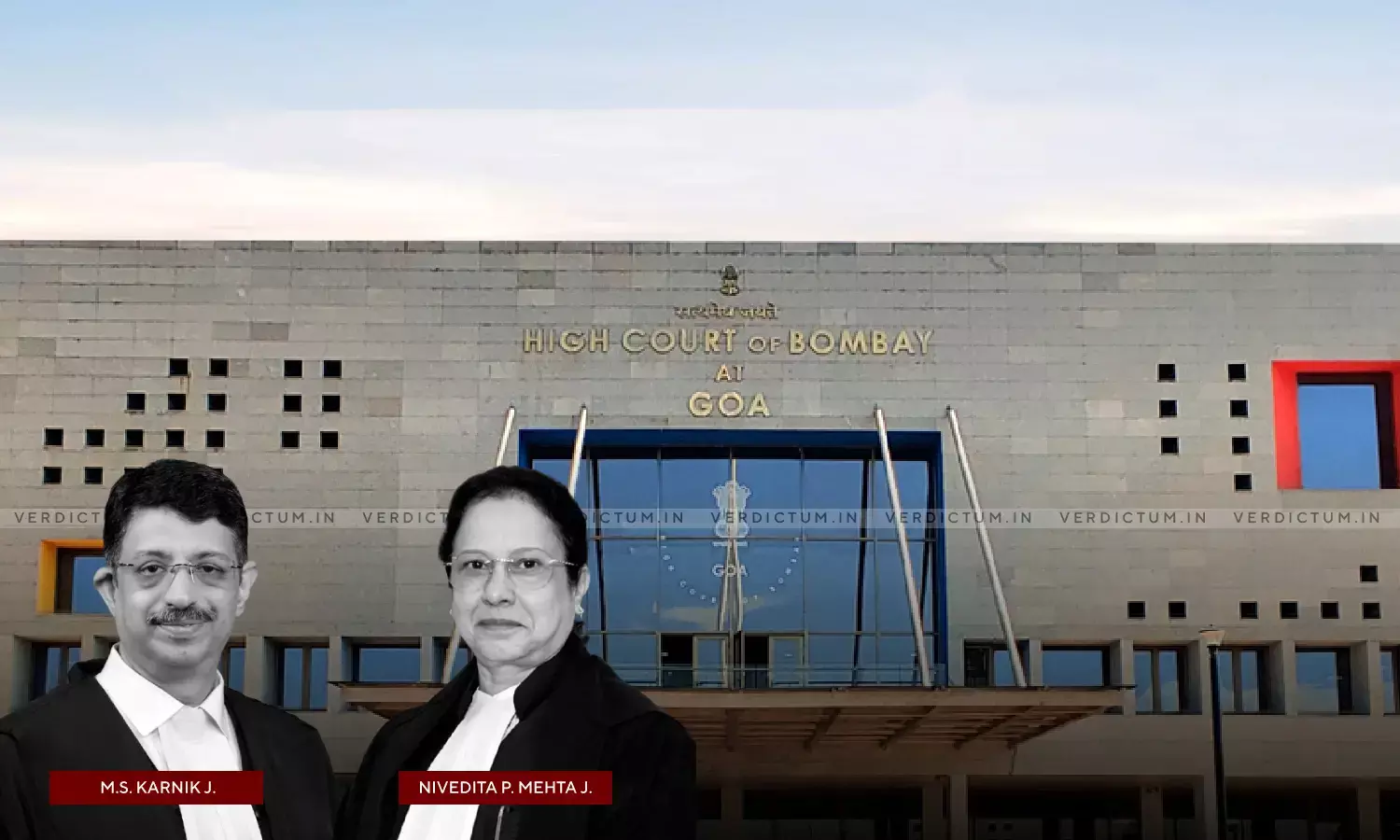Where Dominant Activity Of University Is Education, It Cannot Be Termed As Business Activity To Demand Tax: Bombay High Court
The Bombay High Court held that the activities of the Goa University not being commercial in nature, are not amenable to GST.

The Bombay High Court, Goa held that where the main and dominant activity of the University is education, it cannot be termed as business activity to demand tax.
The Court held thus in a Writ Petition preferred by the Goa University under Article 226 of the Constitution, challenging a show-cause notice (SCN) issued by the Joint Commissioner of Central Goods and Services Tax (CGST), Goa Commissionerate, proposing to demand GST on the educational activities of the University.
A Division Bench comprising Justice M.S. Karnik and Justice Nivedita Mehta observed, “Learned Senior Advocate for the Petitioner University is justiied in contending that where the main activity is not a business then any incidental or ancillary transaction held, would normally amount to business only if an independent intention to carry on business in the incidental or ancillary transaction is established. The burden to prove such intention rests on the Department. Hence, where the main and dominant activity of the University is education, it cannot be termed as business activity to demand tax.”
The Bench said that the activities of the Goa University not being commercial in nature, are not amenable to GST.
Senior Advocate Raghuraman appeared for the Petitioner while Senior Standing Counsel (SSC) Asha Desai appeared for the Respondents.
Factual Background
The Petitioner-Goa University was set up under the Goa University Act, 1984, for providing higher education in the Goa State. An SCN was issued to the University demanding service tax on affiliation fee by the Deputy Director, DGGI, Goa. Based on the reply of the University, the SCN proceedings were dropped vide an Order of the Assistant Commissioner, Central GST. The University obtained GST registration and was under the administrative control of Central Tax Authorities. The University was remitting GST on the rent received from third parties and also filing returns on a regular basis. It had granted affiliation to around 67 colleges in the State and collected ‘affiliation fee’. The Superintendent of CGST requested for submission of report on the GST payment by the education boards on affiliation services.
The University replied to the same stating that it has not charged GST on affiliation fees received from the colleges. The office of the Superintendent of CGST requested the University to submit a detailed report as to why GST was not paid by them on affiliation fees collected. The University submitted that the affiliation fees was meant for students and treated as student-related activity and hence, it has not charged GST on the same. Thereafter, the Assistant Commissioner of CGST issued the intimation of tax, demanding the GST payable on affiliation services amounting to Rs. 1,90,30,494, along with the applicable interest and penalty. The University denied the tax demand and subsequently, the Joint Commissioner issued the impugned SCN to the University. This was challenged before the High Court.
Reasoning
The High Court after hearing the arguments from both sides, noted, “… the service provided by an educational institution to its students, faculty and staff are exempted and secondly, services provided by third parties to an educational institution relating to the matters specified therein are exempted from fees.”
The Court further noted that without the affiliation from the Petitioner University, the constituent colleges are not permitted to admit students for the courses and that the examination is conducted by the Goa University which in turn leads to award of degree to the students.
“Hence the fees which are collected from colleges are clearly covered by the exemption notification. The activity of the Goa University in collecting the affiliation fees is exempt from GST and hence the fees collected by Goa University is not liable to tax”, it added.
The Court agreed with the submission made by the Senior Advocate that the term 'education' should not be restricted to the activity of teaching/providing instruction to students inside a classroom, rather it is a wider term which would involve the activity of designing the curriculum for the course of study which would be used by constituent colleges, giving affiliation to colleges so that the standard of education imparted by them is in accordance with the standards set by the Goa University, conferring the degree at the end of the course to the students.
“The petitioner University has reported income in the income and expenditure account and its schedules and sub-schedules have been listed and the GST is demanded on the same without establishing as to how these incomes would be liable to GST. The GST is proposed on the sale of prospectus, sale of old newspaper, various fees towards sports, eligibility certificate, migration certificate, admission fee etc., received from students are also taken for the purpose of demand. Further, demand of tax is also proposed on interest income earned by the university”, it also noted.
The Court observed that the incomes such as rent/license fee received from teachers or staff are clearly exempt from tax being residential in nature and being services rendered to faculty.
Accordingly, the High Court allowed the Writ Petition and quashed the show-cause notice.
Cause Title- Goa University v. Joint Commissioner of Central Goods and Services Tax & Ors. (Neutral Citation: 2025:BHC-GOA:721-DB)
Appearance:
Petitioner: Senior Advocate Raghuraman, Advocates Gauravvardhan Nadkarni, Jay Mathew, B. Murthy, and Raghavendra C. R.
Respondents: SSC Asha Desai


